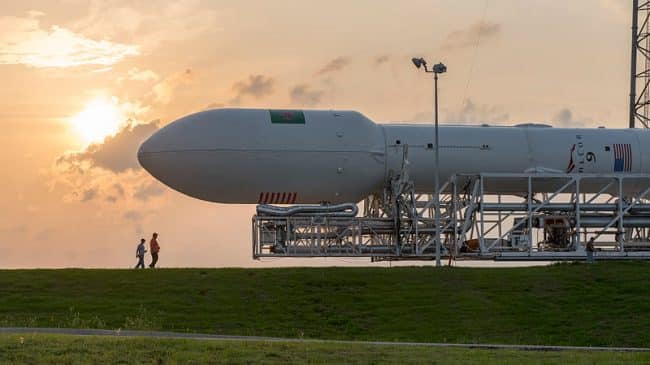On the same day NASA grounded the space shuttle program, space entrepreneur Burt Rutan and billionaire Richard Branson announced the formation of a new company that will build suborbital spaceships, some of which will be used to start a private space flight business. That these two announcements were made on the same day is more than an interesting coincidence, it foreshadows the future trajectory of manned space exploration – one dominated, not by NASA and bureaucracies, but by entrepreneurs.
Two years after the shuttle Columbia disintegrated upon re-entry into the atmosphere, killing seven astronauts, Discovery’s return to flight was supposed to hush NASA’s critics. Then a chunk of foam broke off an external fuel tank during Discovery’s launch, prompting NASA to ground the space shuttle program until it resolves the problem. Such an announcement is hardly confidence-inspiring, particularly while seven astronauts float through space in one of those grounded shuttles. What’s particularly troubling is that this is the same problem that led to the Columbia tragedy; even the dislodged foam chunks were nearly identical in size. When the foam hit Columbia’s wing hot atmospheric gases funneled inside and tore the shuttle apart upon re-entry. Luckily, NASA believes Discovery avoided the kind of damage that spurred Columbia’s catastrophe.
Yet we must consider the shuttle’s grounding, the Challenger and Columbia tragedies, and other setbacks alongside the triumphs. All Americans look back wistfully on Neil Armstrong’s moonwalk and NASA proudly points to inventions, from satellite broadcasting to smoke detectors, that our space program helped develop. Congress seems impressed. The House just voted to give NASA $34 billion over the next two years. But what will we get for the money? Now is the time to remember that innovation’s best fuel is freedom, not federal funding.
Entrepreneurs like Branson and Rutan, not NASA, are the future of space travel.
Consider safety. Since humans began venturing into space, 4 percent of astronauts have died in the process. Rutan, whose SpaceShipOne was the first private manned ship to enter space, notes that you can’t run a business killing 4 percent of your customers. Rutan wants as many people as possible to fly in his spaceships and that’s one reason he’s obsessed with safety.
Rutan’s craft features a “care-free re-entry” design. It allows the ship to realign itself automatically, making it much safer to plunge back into the earth’s atmosphere. When I interviewed him recently, Rutan pointed out that, after 44 years of manned space flight, NASA still hasn’t achieved the kind of safety breakthroughs his small team achieved in a just a few years.
And what about scientific breakthroughs? Officials once expected the space shuttle to launch as often as every week, but decades later even yearly liftoffs are hard to come by. Meanwhile, the space station’s scientific expectations keep getting pared back even as its cost swells past the $100 billion mark, more than a dozen times early estimates.
When NASA does tally up an impressive accomplishment, like crawling across Mars and beaming back intriguing findings about the red planet, it’s easy to marvel at it and forget that sticking with the status quo can actually mean passing up even greater accomplishments. What if, instead of a top-down government-controlled monopoly, space exploration developed like aviation?
Aviation flourished in an environment of decentralized experimentation. Early aviators produced all sorts of rickety contraptions, but the good ideas quickly separated themselves from the pack. Imagine that only 24 years separated Charles Lindbergh’s trans-Atlantic trip from the Wright Brothers’ herky-jerky jaunt into history. Back then, the creativity of early inventors was stoked by over 100 incentive prizes and when Rutan’s team claimed the $10 million Ansari X Prize, aimed at spurring private space travel, with two suborbital flights last year it signaled a return to aviation’s entrepreneurial roots.
Indeed a presidential commission recently released a report outlining how the government could harness private creativity. Why not, the report asked, offer up to a billion dollars to the first organization that can return man to the moon?
Under that scenario we wouldn’t be limiting ourselves to NASA’s capabilities. As Branson put it, “Like many millions of people growing up in the Sixties who witnessed the wonder of man walking on the moon – I dreamt that one day I too would make that ‘one small step…’! Unfortunately though, over the last three decades, many people gave up hope – luckily people like Burt Rutan never did. His vision has allowed people, like me, to dream again.”
It’s time to move past the era when governments monopolized space and celebrate the entrepreneur’s return to the sky.
Ted Balaker is the Jacob’s Fellow at Reason Foundation.
